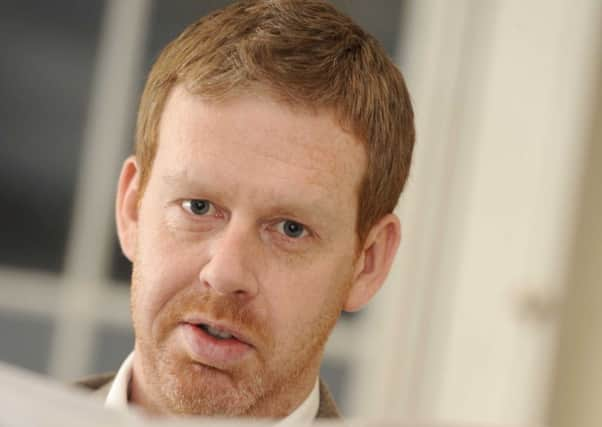Comment: Scotland on the horns of a dilemma


While smartphones and cloud computing have driven this upward trend in tech superstars, disruptors in more traditional industries are adding to the ever-increasing number of unicorns, or “blessing of unicorns” as the grouping is sometimes known, so think Airbnb in the hotel sector and Uber in the taxi industry.
When turning to Scotland, its incredible that we are on the verge of having two unicorns of our own in the form of travel search player Skyscanner and fantasy sports website FanDuel.
Advertisement
Hide AdAdvertisement
Hide AdNow over a decade old, Skyscanner has reached the near mythical valuation, while FanDuel, itself only five years old, is expected to break the tape (although by no means is reaching unicorn status the finish line) this year.
When you remove the heady valuations of Silicon Valley, our unicorn count compares very favourably to other, more well-established tech hubs like London, Berlin and New York.
So we must be doing something right in Scotland – right?
When you look at the tangibles, like a world-beating Informatics school in Edinburgh that is only headed by a handful of more famous schools like Stanford or MIT, and a support network for startups that is the envy of many other tech hubs, then yes we’re definitely doing a lot right.
We have well-intentioned enterprise agencies with a strong track record in match funding from a growing angel investor network, although some argue that both these cogs of the tech ecosystem wheel – the enterprise agencies and the angels – need to step up their game.
How much stronger could Scotland’s tech offering be if they did, along with more international venture capitalists setting up shop here?
But there are intangibles, moments of good fortune or even luck that have also played a part in Scotland’s weighty unicorn count.
In the case of Skyscanner, it was as much by luck as by design that Gareth Williams and his co-founders decided on Edinburgh as the place to startup.
And in the case of FanDuel, it’s hard to argue that Lady Luck didn’t have a hand in seeing a Northern Irishman brought up on a dairy farm found and locate a web start-up focused on North American sports in Scotland’s capital.
Advertisement
Hide AdAdvertisement
Hide AdOther intangibles? Both Williams and Eccles have spoken of their attraction to Edinburgh as a place to live and work; and it’s increasingly clear that the once heralded Athens of the North is now viewed as a classic 21st century city to build businesses from.
There are differences to Skyscanner and FanDuel worth examining – differentiators that show tech companies can succeed by taking quite distinct paths. FanDuel, you could argue, is very much more of a product of the Scottish system than Skyscanner:
Nigel Eccles studied at St Andrews, FanDuel went through the Engage Invest Exploit (EIE) programme run by Informatics Ventures, was partly funded by Scotland’s enterprise agencies and took office space in the Jamie Coleman-run tech incubator that was a forerunner to CodeBase.
Skyscanner comes from a different, much more standalone mould, having scaled globally without so much support from the system. The only external funding the startup took in the early days was in the form of a £1.5 million Scottish Equity Partners investment in 2007.
At the same time, Skyscanner has undoubtedly benefited from the system and to many, quite rightly, has become the flag-bearer for the best of tech in Scotland.
It has an enormous HQ in Edinburgh, providing hundreds of high-quality jobs in tech and marketing. It goes to show that there are many ways to skin a cat or to become a unicorn. It’s impossible to draw up a plan of how to become a unicorn, but it’s great that our gazelles – the youngest, fastest-growing of our SMEs – have startups like FanDuel and Skyscanner to look to for inspiration. We waited for a metaphorical bus to come along in Scotland, then two turned up. It could be a bit of a wait for the next one, so let’s give all our support to the gazelles – and anyway, the unicorns don’t really need it anymore.
• Nick Freer is the managing director of Freer Consultancy, freerconsultancy.com, @freerconsults
SUBSCRIBE TO THE SCOTSMAN’S BUSINESS BRIEFING